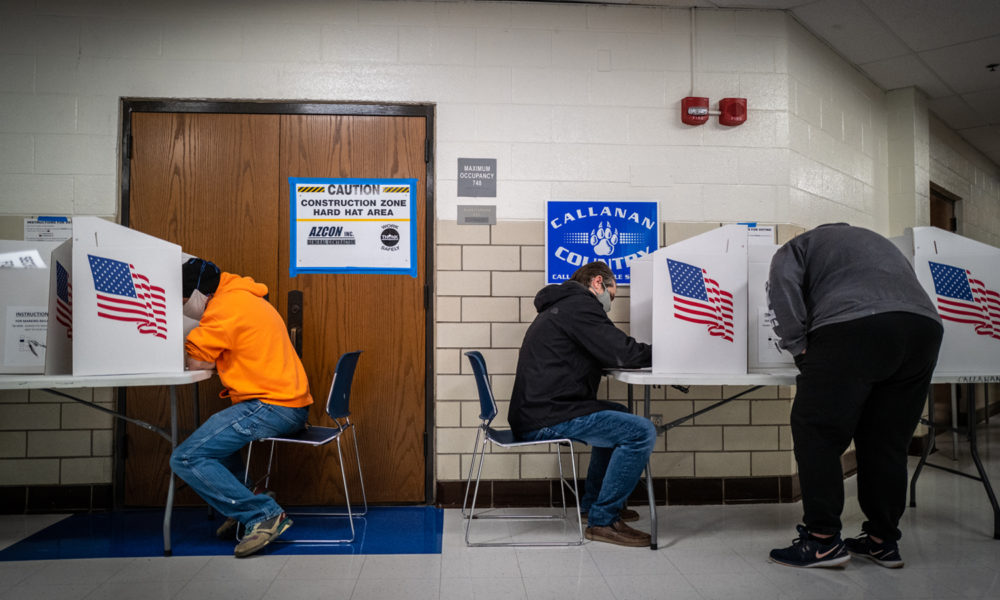The fact that the outcome of yesterday’s vote was expected made it no less tragic, when along purely partisan lines, the US Senate failed to consider much needed voting rights protections in the For the People Act (FTPA).
Criticisms of the bill ranged from thoughtful to conspiratorial. Senator Murkowski (R-AK) had at least read the bill, and pointed out some legitimate concerns about how smaller jurisdictions could meet early voting and similar requirements (all of which have fairly straightforward solutions, if the bill was actually considered). Yet even the moderate Senator from Alaska, who supports reform when it benefits her, parroted the manufactured talking points. Generally, these claims mimic the “states rights” arguments of those who opposed the 1965 Voting Rights Act.
The policy-specific opposition focused on three repeated points: the public campaign finance component, perhaps the most objectionable part of the bill for The Money People who are also largely funding voter suppression efforts across state legislatures; the “ballot harvesting” provision, used by opponents to suggest that third parties collecting ballots would engage in election fraud, even though most states already allow voters to designate someone to turn in their ballot; and again and again, opponents claimed, without evidence, that automatic voter registration, same day registration and restrictions on voter identification laws will increase voter impersonation fraud. Senator Tillis (R-NC) even had the hutzpah to claim that the voter ID requirements in his home state of North Carolina, which he supported in the state legislature, improve electoral integrity. He neglected to explain that one of the laws he supported was determined by a federal judge to target African American voters “with almost surgical precision.”
After the vote, and apparently reading straight from the Heritage Action “toolkit”, Senator Ted Cruz claimed that the “Corrupt Politicians Act” (their term) would have lead to rampant illegal voting, the eternal dominance of the racist Democratic Party, and the end of civilization as we know it. If Senator Joe Manchin (D-WV) anticipated that his compromise proposal would garner any bipartisan support, he was surely disappointed.
So what now? Senate Democrats say they are not giving up, so they need a narrowly focused Election Protection Act, and if that fails to get 60 votes, they need leverage to adapt the filibuster. Setting aside most of the reforms that brought together such a strong reform coalition will leave many frustrated, but the danger of having elections subverted by state legislatures is a bigger threat at this point. A narrow focus on four sets of provisions would make it easier to set up a potential showdown over the use of the filibuster to derail democracy:
- Automatic voter registration with list maintenance and universal voter ID: Coupling these three provisions into a single electoral integrity package makes political and practical sense. By registering all eligible voters (through varieties of state agencies/services), requiring that states use unbiased voter list management, provide every voter on the list with ID, and allow people to vote provisionally with alternative ID/affidavit, Congress can address both the popularity of voter ID laws and the nefarious actions that states have taken to use voter ID to suppress turnout. Of course, it would be even easier for the federal government to provide citizen-eligible ID and manage registration, but, “states rights” and all.
- Early voting, ballot tracing, and risk-limiting audits: Access to absentee and early voting will continue to be a sticking point, as this is the basis of former president Trump’s baseless claim that he didn’t lose the 2020 election. Nevertheless, in addition to meeting those lies with facts, providing mail ballots and early in-person voting can be matched with required paper ballots (yes, mail ballots are made of paper!) and mandatory, true risk-limiting audits, which few states actually provide. Ballot tracing software requirements allows voters and election officials to monitor the chain of custody for every ballot printed. And flexibility in early in-person voting hours could be scaled up or down as a function of eligible voting populations to help small jurisdictions comply.
- Independent redistricting with state districting options: One of the most important components of the For the People Act addresses the capacity of political parties to engineer partisan advantage through gerrymandering and vote dilution. Establishing independent, citizen-led districting commissions provide the best opportunity to draw unbiased districting plans. Independent commissions are already popular with both Republican and Democratic voters, but it is possible to add more bipartisan flexibility for states. Allowing states to adopt multi-member districts and proportional representation for Congressional elections would limit the capacity for parties to gerrymander, while also addressing the threat of rising authoritarianism. Proportional representation has also gained support in conservative intellectual circles.
- Basic safeguards against state election subversion: Perhaps the greatest defect of S1, which never came up yesterday, is the absence of provisions directing state legislatures on how votes are to be counted and certified. In Arizona, Georgia, Texas, and other states, legislatures are positioning themselves to replace local officials and influence the certification of elections. These practices should be expressly prohibited, and the results of federal elections should be counted, audited and certified using a uniform process directed by duly certified election administrators in all states.
Of course, such a strategy assumes that both political parties are interested in substantive policy and governing. But even if that is not the case, forcing yet another vote on such basic, bipartisan and effective protections will lay bare the consequences of inaction. Under those conditions, it will be easier for a majority to restore the “talking” filibuster or adapt the current rules to allow for a majority vote on civil rights. The alternative is to allow state legislatures to distort the federal balance of powers between state and national government, a balance that is being transformed through state legislatures’ distortion of Congressional elections.

